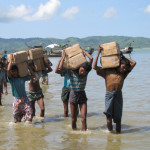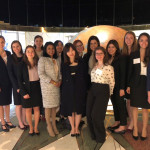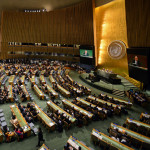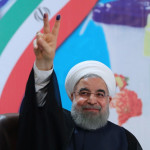
-
May 22By: Engy Abdelkader, JD, LL.M.The United Nations (UN) has long characterized the Rohingya as the world’s most persecuted population. Historically, the Burmese viewed the ethnic and religious minority as illegal immigrants permitted entry by their former British colonizers. Such historical context informs contemporary views of the group as “foreigners.” And that has helped justify decades-long persecution by both private and public actors culminating in the Rohingya’s legal exclusion as citizens and other discrimination codified as law. Despite the group’s pre-colonial ancestral ties to the land, messaging that Rohingya are “outsiders,” “Bengalis” and even, “terrorists,” has helped the government justify mass atrocity crimes. The current humanitarian and human rights crises also implicate national security.
More » -
May 1By: Shane Fischman, L’19It is a timely issue of resonance and consequence, the confluence of a class of committed students and an engaging Professor of unparalleled expertise. Our vigorous classroom discussions sounded more like policy debates and revolutionary cries than staid academic deliberation We represented a handful of different countries and states, a global array of religious, cultural, and economic backgrounds. More like a weekly conference than a class, we spent our two hours every Tuesday afternoon in friendly arguments— was it enough to have women at the table, or have people been ignoring a critical variable in the equation, having the right women at the table? And if that is the case, then how do we ensure women in the international community were prepared to lead? And is the top-down approach to securing women’s rights effective, or is that method only paying lip-service to the women living in rural villages who are legally barred from accessing capital to run a business and from attaining a passport without a male guardian’s permission?
More » -
March 27By: Kimberly Panian, L’18This year’s Commission on the Status of Women (CSW) proved to be a historic one where member states gathered to discuss the substantial progress made in favor of gender equality. While each country addressed areas still in need of work, each event of the CSW offered an inspirational promise of hope. The excitement was palpable whenever discussing the significant progress already made—how women’s voices have been amplified and legitimized through legal reform and political activism.
More » -
January 9By: Sarah Paoletti, Professor of Practice and Director of the Transnational Legal ClinicIn 2017, the UN and its members, as well as intergovernmental and non-governmental agencies, committed themselves through regional and international dialogue to developing a new framework to address the challenges confronted in and by migration. As the world recognized the need for greater international collaboration, the Trump Administration moved the United States towards a more isolationist approach while implementing restrictive and enforcement-oriented policies and practices, in a notable shift from prior administrations. As we head into 2018, the United Nations and its members have set out to draft and agree upon an international cooperative framework for managing migration, while also ensuring that the rights of migrants are respected, protected and fulfilled. 2018 will be the year to see whether the political resolve exists to meet this goal, with or without the United States’ participation.
More » -
November 6By:Part IV in a Series that discusses, debates, and explores the idea of culture – beginning with its definition to how it intertwines with other social constructs and trends such as class, gender, sexuality, populism, and activism.
Hafidzi Razali, LLM ’18
More » -
November 3By: Austin Gassen, JD ’19Part IV in a Series that discusses, debates, and explores the idea of culture – beginning with its definition to how it intertwines with other social constructs and trends such as class, gender, sexuality, populism, and activism.
More » -
November 2By: Hamza El Mouahid, LLM ’18Part III in a Series that discusses, debates, and explores the idea of culture – beginning with its definition to how it intertwines with other social constructs and trends such as class, gender, sexuality, populism, and activism.
More » -
October 31By: Beatriz Brown, LLM’18Part I in a Series that discusses, debates, and explores the idea of culture – beginning with its definition to how it intertwines with other social constructs and trends such as class, gender, sexuality, populism, and activism.
More » -
October 30By: Leah Wong, L’18 and Global Affairs Blog EditorThis year, JD, LLM and SJD students will come together in a series of roundtables to discuss, debate, and explore the idea of culture – beginning with its definition to how it intertwines with other social constructs and trends such as class, gender, sexuality, populism, and activism.
More » -
May 19By: Dr. Haleh Esfandiari, Former and Founding Director of the Middle East Program, Woodrow Wilson International Center for ScholarsHassan Rouhani may prevail in tomorrow’s presidential elections. Whether he can continue on the path to reform is uncertain.
More »









